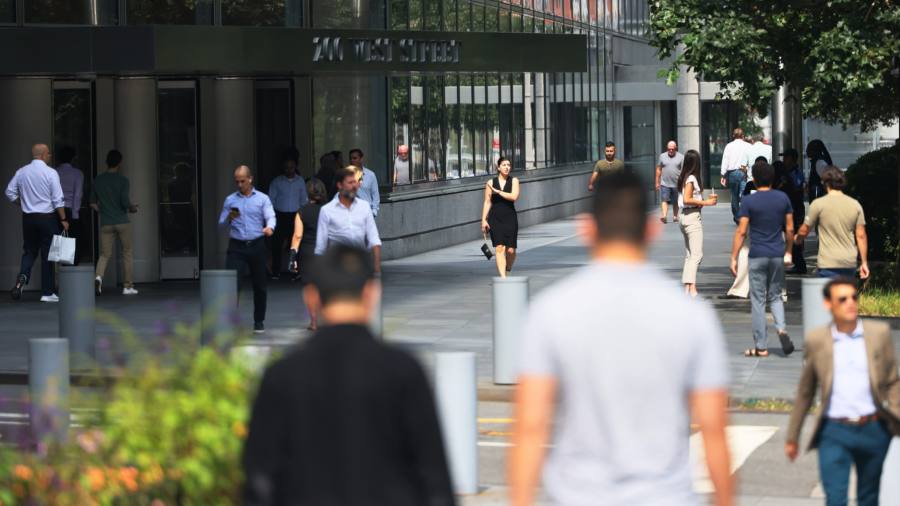Goldman Sachs’ profits plunged by two-thirds last quarter, missing expectations and capping a grim year that has forced the bank to embark on its biggest cost-cutting exercise since the financial crisis.
It was the Wall Street bank’s fifth straight quarter of falling profits and Goldman has already moved to cut more than 3,000 jobs, slash bonuses and launch a sweeping review of spending.
The drop in fourth-quarter profit was led by a sharp slowdown in investment banking activity as higher interest rates and a weakening global economy ended a multiyear dealmaking boom.
Goldman said on Tuesday that fourth-quarter net income fell to $1.3bn, short of analysts’ expectations of $2.2bn and down from $3.9bn in the same period last year.
Shares in Goldman fell by almost 4 per cent in early trading in New York.
A 48 per cent drop in investment banking revenues in the quarter to $1.9bn echoed declines reported last week by JPMorgan Chase, Bank of America and Citigroup. The weakness in investment banking overshadowed a better than expected performance from the bank’s traders.
The bank’s newly formed consumer financial technology unit also hit profits last quarter, with the division slumping to a pre-tax loss of $778mn. That was largely due to provisions Goldman made to cover potential losses on loans.
Fourth-quarter revenues from fixed income, currencies and commodities trading were $2.7bn, ahead of analysts’ estimates of $2.4bn, while revenues from equities were $2.1bn, matching forecasts.
UBS analysts said that the magnitude of the earnings miss was hard to assess without Goldman providing further information around severance costs and restructuring charges stemming from its cost-cutting programme.
Despite the declines from a record 2021, Goldman’s net income for the full year was $11.3bn, its second-best performance since 2009, according to Bloomberg data.
Goldman’s average tangible common equity for the quarter was 4.8 per cent, well behind its target of 15 to 17 per cent which the bank announced in February. For the full year, its return on tangible equity was 11 per cent.
Credit: Source link














